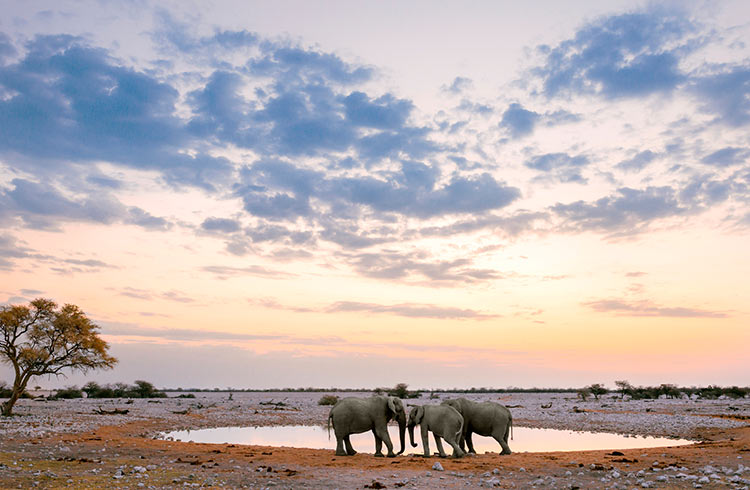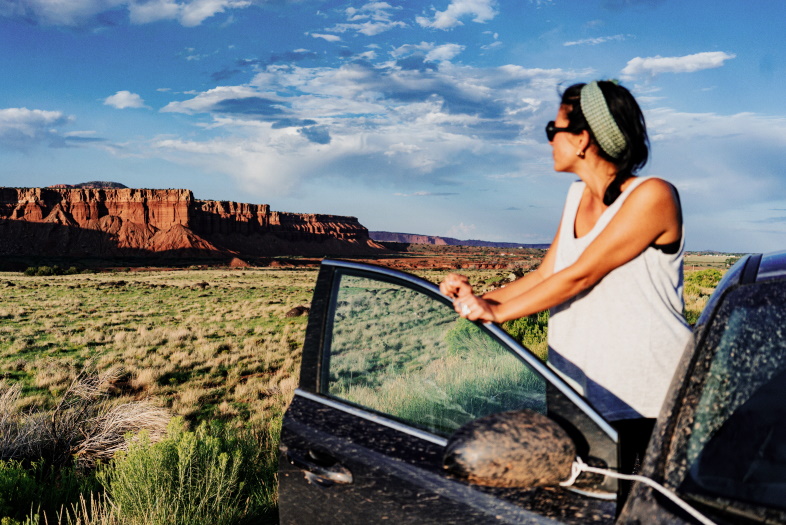Is Namibia Safe For Travelers? 9 Tips to Avoid Trouble
Coronavirus (COVID-19) and travel: The situation around the world is changing dramatically. Various governments have changed their travel warnings to restrict travel during this time. To understand how this may impact cover under your policy, please go to our FAQs and select your country of residence.
For the latest travel warnings and alerts around the world, read about lockdowns and border restrictions.
How to avoid crime, stay healthy, safe and navigate Namibia's insane roads safely. Don't go to Namibia without reading these tips.
Shares
 Photo © Getty Images/Westend61
Photo © Getty Images/Westend61
1. Crime in Namibia
Crime is a serious concern in Windhoek and other areas throughout Namibia. Robberies, muggings, and thefts occur frequently, especially in downtown shopping areas and wherever crowds of travelers are found.
Incidents are less frequent during the day than they are after dark. Victims of crime who do not resist the crime and surrender their belongings usually get away from these encounters unharmed. Criminals sometimes display knives and occasionally firearms. The Namibian Police established a Tourist Protection Unit, but they are severely understaffed, so the prevention of crime is not yet at it's predicted full potential.
The most common types of crime in Namibia are non-violent, such as pick-pocketing, purse-snatching and vehicle theft. Common sense rules apply: don't leave valuables in parked cars, keep your bags safe and out of sight, and be alert and aware of anyone following you at all times.
2. Dangerous roads in Namibia
Driving can be very dangerous in Namibia. Unfortunately, traffic fatalities among travelers are common.
Although major roads are well maintained, Namibia's network of secondary roads can be hazardous, particularly during the rainy season (November to April).
If you have hired a car to drive in Namibia, be extra careful. Driving at night outside urban areas is dangerous, as unlit roads make it difficult to see, and there are animals frequently crossing roads. If you are driving outside Windhoek, try to arrive at your destination before it becomes dark in the evening.
Always pack plenty of water, food, and emergency medical supplies just in case you break down.
If you are driving in urban areas, be aware that taxis often stop abruptly to pick up and drop off passengers, which causes many collisions on Namibia's roads.
Namibian police checkpoints are positioned outside major cities and towns on all major highways. During the holiday season, additional checkpoints can be established along the Windhoek–Swakopmund highway and near medium-sized towns. Drivers should be prepared to show vehicle registration documents, identification (passport, Namibian identification cards), rental car paperwork, and/or driver's licenses on request. Police have fired warning shots at vehicles that ignore roadblocks, so you should always stop and wait to be waved through.
3. Civil unrest and political violence in Namibia
The risk of political violence is low in Namibia. Street demonstrations are rare and, are usually not violent if they do occur. Organizers of labor union-led demonstrations generally enforce discipline among their people, and do their best to avoid confrontation with authorities.
Namibia has been independent from South Africa since March 1990. There has been little political violence in Namibia, due to its stable democratic government. If you are traveling during election times (November 27 in 2019), stay up to date with local news reports to make sure there is no outbreak of civil unrest.
4. Terrorism in Namibia
Namibia is rated low for terrorism. There are no known organized criminal groups operating in Namibia. In 2009, the Prevention of Organized Crime Act and the Financial Intelligence Act entered into force, which are laws aimed at the suppression of organized crime, money laundering, and terrorist financing in Namibia.
5. Environmental hazards
Namibia is a dry, semi-desert country. It can experience extreme temperatures, especially during summer (November to April) and flooding can occur during the rainy season (December to March) in the central and northern regions. Dry river beds occasionally flood, making gravel roads impossible to pass. Drivers should always look out for warning signs, and never ever try to make a crossing where water is flowing.
6. Will I get kidnapped in Namibia?
Very few incidents of kidnapping have been reported in Namibia. However, the reported kidnapping incidents were not politically motivated but related to domestic disagreements. No major incidents of kidnapping against travelers have been reported. The overall threat of kidnapping risk in Namibia is low.
7. Drugs in Namibia
Most of the drugs that are found in Namibia have been illegally smuggled into the country, as Namibia is being used as a transit route for drugs destined for countries throughout southern Africa.
Marijuana is relatively cheap, however, it is illegal and travelers should be aware drug laws are strictly enforced in Namibia.
8. Police in Namibia
Under Namibian law, any law enforcement officer must show their credentials and identify themselves before carrying out an arrest.
The Namibian police department opened a Tourist Protection Unit (TPU) to assist visitors who have been subjected to crime. As a pilot project, TPUs were established first in the Khomas and Erongo regions. The Tourist Protection Unit in Windhoek is located at the corner of Independence Avenue and Bahnhof Street.
Namibian Police: 10 111
9. Medical facilities and emergencies in Namibia
Windhoek has a number of adequate medical facilities, and there are a number of medical evacuation companies around.
- Tap water is generally safe to drink throughout Namibia, however, if you want to be on the safe side, boil your water or use purification tablets
- Malaria prevention methods are recommended for travelers visiting rural areas in northern/eastern Namibia, or anywhere north of Otjiwarongo
- Meningitis immunizations and an adult booster for Polio are also recommended
- Check with your travel doctor to be sure you're up to date with routine vaccinations
- Visitors to Namibia should be aware that HIV/AIDS is common, and sexually active travelers should use protection.
Get a travel insurance quote for Namibia
You can buy at home or while traveling, and claim online from anywhere in the world. With 150+ adventure activities covered and 24/7 emergency assistance.
Related articles
Simple and flexible travel insurance
You can buy at home or while traveling, and claim online from anywhere in the world. With 150+ adventure activities covered and 24/7 emergency assistance.
Get a quote
No Comments